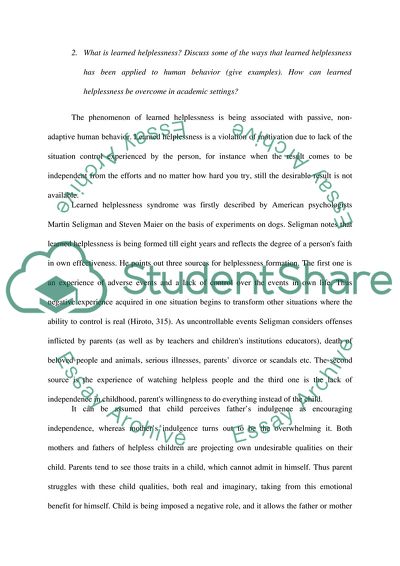Cite this document
(Violent Video Games and Learned Helplessness Assignment Example | Topics and Well Written Essays - 2000 words, n.d.)
Violent Video Games and Learned Helplessness Assignment Example | Topics and Well Written Essays - 2000 words. https://studentshare.org/psychology/1833642-psychology-research
Violent Video Games and Learned Helplessness Assignment Example | Topics and Well Written Essays - 2000 words. https://studentshare.org/psychology/1833642-psychology-research
(Violent Video Games and Learned Helplessness Assignment Example | Topics and Well Written Essays - 2000 Words)
Violent Video Games and Learned Helplessness Assignment Example | Topics and Well Written Essays - 2000 Words. https://studentshare.org/psychology/1833642-psychology-research.
Violent Video Games and Learned Helplessness Assignment Example | Topics and Well Written Essays - 2000 Words. https://studentshare.org/psychology/1833642-psychology-research.
“Violent Video Games and Learned Helplessness Assignment Example | Topics and Well Written Essays - 2000 Words”. https://studentshare.org/psychology/1833642-psychology-research.


